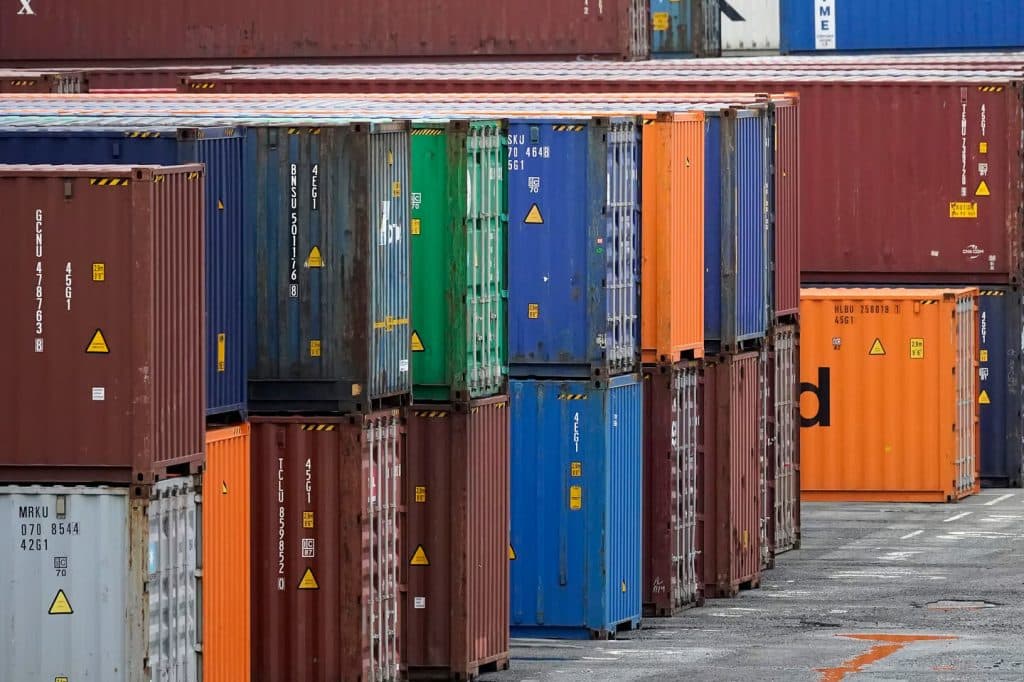
The costs of shipping goods in containers have risen rapidly since the start of the coronavirus pandemic.
LONDON — A global shortage of shipping containers is driving a surge in import and export costs that is hitting businesses and threatens to dip into customers’ pockets.
A consumer shift away from services to goods, caused by the restrictions imposed by governments to control the coronavirus pandemic, has made it harder for firms to get hold of the containers they need to move stuff around the globe.
This has led to a 165 percent increase in prices over the past year. And between early January 2021 to February 5, shipping container prices rose 63 percent on the Freightos Baltic Index, which tracks global prices.
Freight forwarding experts predict some price stability after Chinese New Year on Friday as shipping firms in Asia work through the holiday to quell the global price problem.
“If such costs continue to rise, then retailers will have little choice but to pass on some of this burden to consumers,” said William Bain, trade policy adviser at the British Retail Consortium. “The increase in freight prices will add further pressure on retailers who are already dealing with higher costs as a result of Brexit and COVID,” Bain explained. The pressure is mounting on British retailers and manufacturers alike.
On top of that, freight prices to bring goods into the U.K. from France and Germany — two of Britain’s largest trading partners in Europe — were up 50.5 percent and 31 percent, respectively, in January 2021 compared to the same month a year before, new figures from Tim Consult Transport Market Monitor show.
Whether trucking or seafaring, freight service reliability has dropped, explains Christos Chamberlain, general manager at freight forwarding platform Flexport. Combined with price rises, he adds, and “it has to be taken in a hit to margins, or it has to take a hit in consumer prices.”
The price spike is being driven by a global shortage of containers. It is estimated there are more than 170 million shipping containers in the world. And there were an estimated 226 million trips made by the standard receptacles in 2019. The overall number is constantly in flux as containers are repurposed for on-land storage, trendy pop-up shops or broken down for scrap.
The shortage is a result of the demand for shipping during the pandemic as people have bought up goods for home improvements, furniture and tech for their new home offices. Combine that with all the personal protective and medical equipment flowing through the global port system and you have a recipe for bottlenecks and backlog.
And while businesses around the world are coping with the shortage, the border disruption in the U.K. due to Brexit has led to extra problems there. As businesses rolled up to the Brexit border on January 1, “you’ve got trade with the EU becoming more difficult,” Chamberlain said. Companies are adjusting to new rules around non-tariff barriers with the EU, rules of origin and VAT treatment.
“It’s been a very, very challenging period for U.K. importers,” Chamberlain said. Britain imports more than it exports and businesses importing from Asia using the U.K. as a distribution hub to re-export into Europe are looking at service disruption on the import side twinned with escalating rates and a tougher export situation to the EU.
“I think it’s definitely something that will be tricky for them in terms of their pricing, the stock that they can carry, availability of stock,” Chamberlain explained. “To a certain extent, we’re seeing some of that already,” he added, with some businesses going “out of stock.”
Auto manufacturing firms like Nissan and Honda both experienced delays to production in January due to the difficulty of getting components from Asia. Some British clothing retailers are also reportedly considering burning stock shipped to the EU that customers want to return because it’s cheaper than hauling it back to the U.K.
“Firms are being hit with increased container and haulage costs with some resorting to expensive air freight to keep production going,” said Mike Hawes, chief executive of the Society of Motor Manufacturers & Traders (SMMT).
Want more analysis from POLITICO? POLITICO Pro is our premium intelligence service for professionals. From financial services to trade, technology, cybersecurity and more, Pro delivers real time intelligence, deep insight and breaking scoops you need to keep one step ahead. Email pro@politico.eu to request a complimentary trial.
© 2024 Twin Fireworks